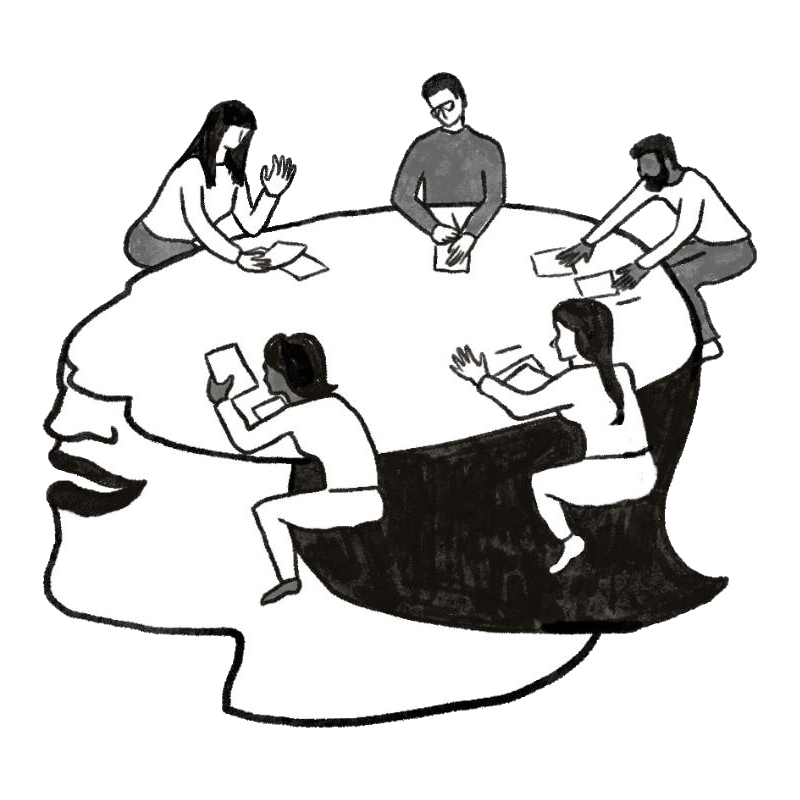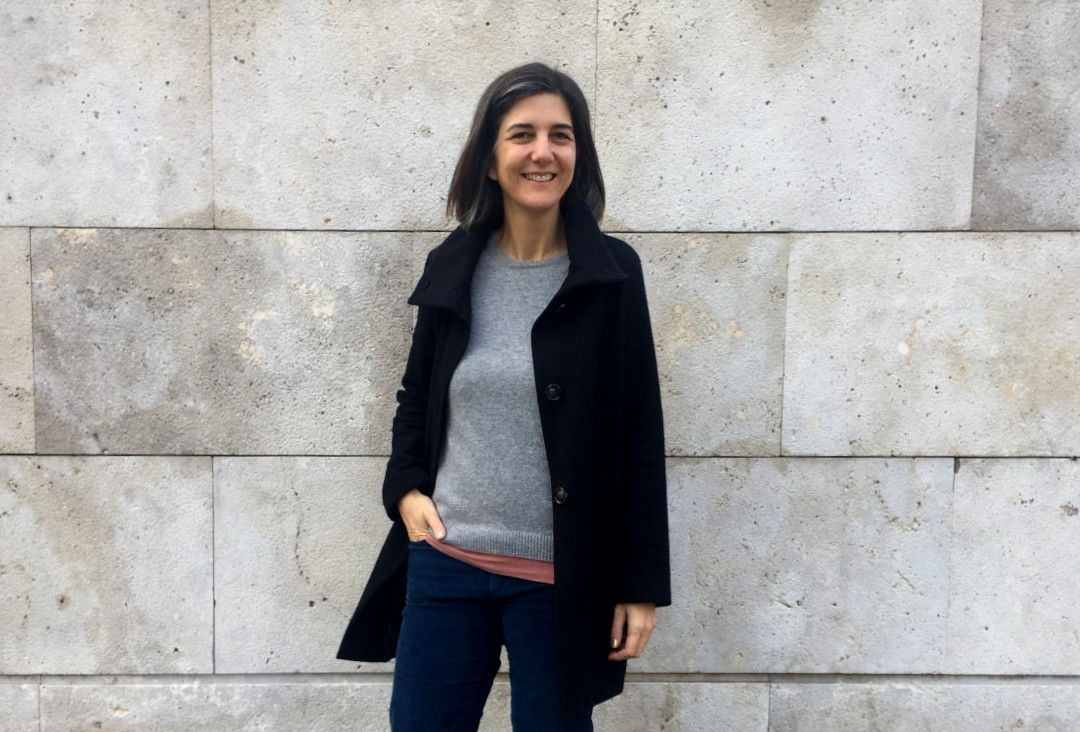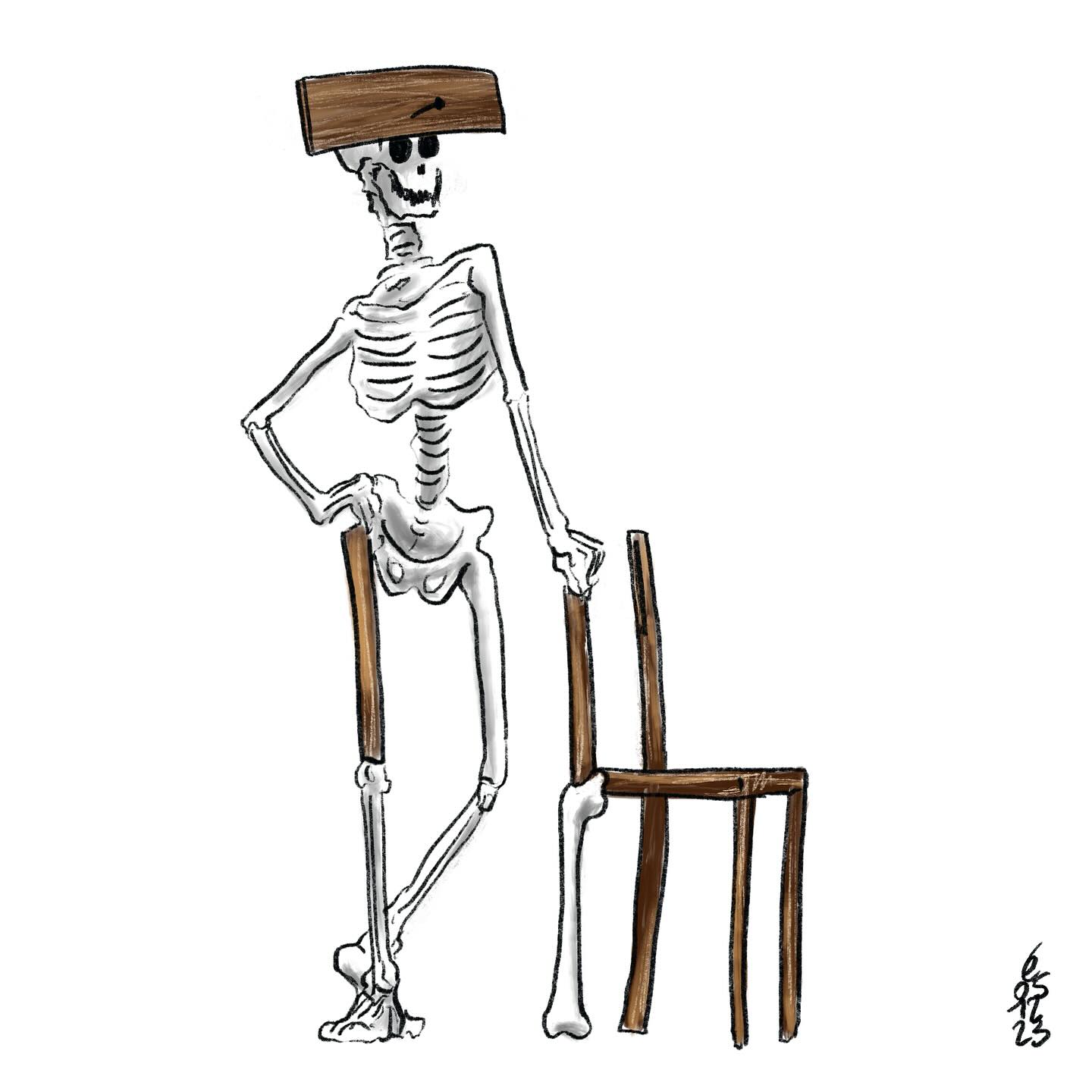Interviews
Arantxa Mendiharat Citizens' Assemblies provide spaces of trust, with a high degree of direct participation

Arantxa Mendiharat envisions the possibility of different worlds: new futures and new democracies. Cultural mediator, co-founder of Deliberativa and co-creator of the website democraciaporsorteo.org, she has, since 2016, been working professionally on deliberative methodologies which get citizens involved based on random selection. Arantxa co-designs and manages projects related to culture and participation which aim to transform our political systems.

When we think of the word democracy, we can only conceive of the representative model that we know today. Are there other models?
In the words of Peter McLeod, I believe that up to now we have been living through what will come to be known as democracy’s first act. This has been 200 years of representative democracy, in which we choose a handful of individuals to represent us and make decisions on our behalf. Now, we may well be entering democracy’s second act, in which citizens begin to share the privilege and responsibility of making decisions about public policy.
What does this second act of democracy look like?
One mechanism which is proving very effective is sortition: a group of people, selected at random, who most accurately represent a cross-section of the population, form Citizens’ Juries or Citizens’ Assemblies which deliberate and make decisions. This works much like a local council, town hall or Parliament, but instead of publicly elected representatives it is made up of citizens who have been chosen at random. These assemblies, much like a regular jury, are set up to deal with a particular issue or set of issues and have short mandates, allowing people to execute their duties for a limited period and rotate responsibility.
Some would argue that your average citizen might not be equipped to make certain decisions about public matters…
For this exact reason the system will allow Citizens’ Assemblies to call on expert committees from all fields, which they can consult regarding the matters at hand. These experts could include civic organisers, politicians, technicians and the like, and each participant can choose the experts from whom they would like to solicit advice, thus ensuring a diverse range of viewpoints. Another important factor is that participants chosen by lottery are given enough time and training to ground themselves in the topic they will be debating. In this way we can ensure that any decision made by the Citizens’ Assembly will be an informed one.
Sortition is an immensely effective tool in the fight against polarisation
How, then, can the diversity of groups chosen by sortition be guaranteed?
Two lotteries are carried out. Firstly, an initial lottery conducted among a broad, random cross-section of the population (chosen, for example, by names on a census, phone numbers, postal addresses). The people who are randomly invited in this way can choose to be included or not. Here there is definitely room for bias, as some profiles will, and some will not, voluntarily accept the invitation. There is then a second lottery, whereby according to region or other factors, seven or eight selection criteria will be established (age, location, sex, socioeconomic situation, qualifications, personal relation to the topic, etc) to guarantee a population sample that is as diverse and representative as it can possibly be.
But won’t it be easier for certain people to participate, because of time or economic constraints?
In these deliberative processes steps are taken to ensure the right conditions for all to participate – covering expenses, support for those with care-related responsibilities, adjusting dates, timetables, etc.
Could these processes help more people to take an interest in politics?
All surveys have shown that people are interested in politics, what’s lacking is interest in institutional politics, and for this reason sortition is also a very effective tool in fighting polarisation. Our current society is polarised because we don’t have shared spaces in which to debate and deliberate, and Citizens’ Assemblies provide spaces of trust, with a high degree of direct participation. There’s a whole process through which citizens can learn, change their opinion and, most importantly, listen to those who think differently to them. At the end, they come out with a decision which the majority of participants agree with. It has been demonstrated that participants in Citizens’ Assemblies tend to be more moderate than the political parties they might vote for or who might represent them. This moderation, coupled with the deliberation process, makes reaching agreements much easier and more likely.
Totally the opposite of the technocratic, expert-led approach to government which we’ve seen gain popularity due to the political handling of the pandemic.
As Ernesto Ganuza says, all the proposals and possibilities provided by our current system (technocracy and charismatic leadership) are leading us towards a diminished democracy. Sortition is one of the few proposals which takes us towards an enhanced democracy. In our recently published book, La democracia es posible (English: Democracy is Possible), we cite scientific studies which prove that small, homogenous groups composed exclusively of experts make worse decisions than large, heterogeneous groups made up of everyday people. There are situations in which a wrong decision would have graver consequences than others (for example in the management of a nuclear power plant), and in these situations the group must not only be diverse, but also as large as possible. Its members don’t need to have any special expertise on the subject (for example cleaning staff), because it has been shown that the more diverse the group, the better the decisions it makes. Obviously, this group would receive all the technical training and preparation it might require in order to hold proper discussion and deliberation.
How could we use Citizens’ Assemblies to navigate the pandemic?
A Citizens’ Assembly tasked with making decisions related to COVID-19 would include young people, old people, parents, people from the hospitality industry etc, essentially a diverse range of people from many different sectors and walks of life. This cross-section of the population would have access to all the scientific data available, information on all the people who have been hit especially hard by the pandemic, and all other information the Assembly would require to make a decision. It would be a completely transparent process – anyone could learn about it from home and formulate their own opinions.
Personally speaking, I like the idea of a preliminary assembly to set the agenda, and then a second one to address some of the questions on that agenda. In Canada, for example, there was a Citizens’ Assembly set up to deal with post-COVID recovery, and it concluded that the matters most in need of urgent attention were housing and education.
Would a Citizens’ Assembly always have to be convened by the government?
Not necessarily. The first Citizens’ Assembly in Ireland was not set up by the government, but by members of civic society, specifically by an association called We The Citizens who carried out a pilot process, and when it worked well, it was then scaled up to the government level. This shows that we don’t always have to wait for the government to put these deliberative processes into action; they can also be started by citizens themselves. However, obviously, when these groups are created by the government in the knowledge that any decision made will then be implemented, there is a much stronger mandate from the outset.
Is there any sort of manual that citizens can use to put a deliberative process into action?
Extinction Rebellion, an entity which is calling for widespread climate-focussed Citizens’ Assemblies, has a lot of detailed information on its website about what Citizens’ Assemblies are and how they work. In reality, however, the movement is still yet to be clearly defined or created, and we can’t say right now that there is a civic base pushing for these types of assemblies, since a lot of people don’t even know what they are yet.
In Spanish we have the website www.democraciaporsorteo.org. It explains key ideas about what these deliberative processes are, and this is the most important work to be done right now; spreading knowledge and showing people what the aims of these mechanisms are, and creating a starting point from which to build up a civic, cultural support base.

How has the pandemic impacted Citizens’ Assemblies, both in their implementation and planning?
One of the biggest and most surprising lessons about the pros and cons of digital participation is that digitalising Citizens’ Assemblies caused an increase in civic participation. A lot of people who wouldn’t have taken part, either because they were unable to travel, or lacked the time or resources to do so, now participate in these processes. At the Citizens’ Assembly for the Climate in Scotland, for example, we saw a larger number of people who accepted the invitation from the first selection.
With regards to people who struggle to take part in the digital world in general, important mediative work is being done to help; resources which were previously used for transport are now being used to provide the tools needed to participate (internet connection, guidance in using digital tools and processes, etc). In fact, at the Scottish Citizens’ Assembly there is one participant who had never previously used the internet at all, and there are also several people who had never taken part in online discussions before. It’s not a perfect solution, but there are definitely some advantages to holding these deliberative proceedings online.
So, would you say that digital innovation has a lot to offer to democracy?
Yes, especially to connect the people selected via sortition, who act as a cross-section, with the general public. Digital platforms such as Decidim allow these processes to be as transparent as possible, and facilitate constant channels of communication between the selected group and the public. This is where, to my mind, digital tools can have the biggest impact.
Right now, sortition is being presented as a mechanism that can be used by governments. But, looking to the future, could an entire democracy be run by sortition? That is to say, could we do away with elections altogether?
There is a lot of debate among those who support deliberative democracy. If both systems were able to co-exist then why not? At the moment I think it’s complicated by the fact that our current political system has a huge problem with the idea that Citizens’ Assemblies could have decision-making power. If the current system is unable to adopt these mechanisms, or fails to incorporate them into a new hybrid system, then I think at some point there will have to be a radical, systemic change. What matters now is that experiences of diverse forms of democracy multiply and become commonplace, so that citizens can see the processes first-hand, experience them for themselves and decide whether they think it is a good way of doing politics or not.
On the other hand, political parties should not see citizens as a risk (i.e. as votes to be won or lost), but rather as a resource. Involving people through sortition will yield better public policies, and, above all else, engender greater trust in the political system.
What would your ideal democratic system look like? How would it be organised? Is it realistic to imagine a system without political parties?
I’m very practical, and I think we have to try things as we go along because on paper anything can work. We have to implement ideas and test to see what really works in practice. What has been tested, up to now, is that diverse groups of people are capable of informing and training themselves, debating, discussing and reaching decisions about complex matters. What is yet to be tested is whether an institution chosen through sortition, rather than by party representatives, could work, and how it would work. My own personal belief is that it can, but I want to see it happen! I think that it would be fascinating to conduct experiments related to this, perhaps on a smaller scale, or on a regional level, and see what happens.
Is sortition vulnerable to the same shadowy political forces that influence so much in our current system? What I mean is, can we really believe that economic powers would respect decisions that went against their interests? At the French Citizens’ Climate Convention, for example, we saw that the 150 citizens involved complained because Macron either amended or directly blocked proposals that didn’t suit him.
Right now those who have the last word are the elected officials, not assemblies, and in our current political system the only body with the legitimate authority to create or change laws is Parliament. For now, this is something we cannot get around. The case of France is representative of just how difficult it is to fit a deliberative system into a representative one. The problem is that a government makes decisions (convening a Citizens’ Assembly whose decisions are supposedly binding) which aren’t accounted for in the legislative system. This is why some of us have doubts about whether the mechanism of sortition can ever amount to anything, since it has no way of ensuring its decisions will be respected, or that they will make a real impact on public policy.
Even if we didn’t have representative democracy with political parties behind it, there would still be economic pressure to contend with. For things to truly change, do we need to change the entire system?
Of course. Now we are focussing on the electoral process, but there are many more things that need to change, like the separation of powers. We need to reconsider, for example, the relationship between the Executive and the Legislative branches, which right now is extremely distorted and imbalanced. We need to look closely at how we select those with executive power and those in the judicial system. There is so much to reconsider and to experiment with. It’s an exciting field, and I think we should be very excited about it, because right now excitement is what is missing from politics. We can see that the system is in a bad state, but we can’t seem to find any way of making it better. What we can do then, is try out alternative systems and see what happens.
You recently participated in the design of the methodology and implementation of the Conference on the Future of Europe. What is your assessment of the experience?
It was the first time that a transnational deliberative process was carried out involving so many countries (27), languages (24) and participants (800) and the learning process was brutal. Apart from the organisation of the citizens’ panels themselves (between September 2021 and January 2022) which led to the publication of recommendations, the second part of the Conference (between January and May 2022) was also a totally unprecedented exercise of negotiating these recommendations with European and national MPs and civil society organisations, to arrive at the joint proposals that are the final result of the Conference presented on 9 May. The great pity of the process was that the three European institutions (Parliament, Commission, Council) in charge of the process were not able to establish specific questions at the beginning of the process, and instead of working on a few complex and long-term issues, citizens worked on practically all aspects of European policies. A very wide range has allowed many issues to be addressed, but has prevented the most problematic issues from being dealt with in depth.
National assemblies have also been held in parallel and will continue to be held. Do you think that the local format improves the quality of the discussions?
It doesn’t necessarily have to. If the citizens’ assemblies are properly designed, if there are the means to implement them and, above all, if governments understand how these assemblies can help them to think about better public policies and resolve issues that are more difficult to answer through the traditional political system, they can be held at any scale. Obviously it is easier to work with one or two languages than with 24, and with shorter travel distances, but all political systems should include citizens’ assemblies in their decision-making mechanisms. If there are European institutions, there need to be European-level citizens’ assemblies.





